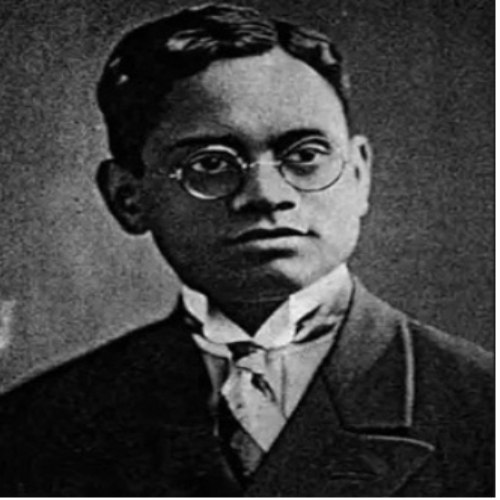Early Life
Raghu Vira was born on 30 December 1902 in Rawalpindi in the present-day Punjab province of Pakistan. He was highly educated and trained as a linguist, having completed his MA in Lahore, Ph.D. in London and D.Litt. from Leiden University, Netherlands. After completing his doctoral research in Indic Studies, Vira went on multiple study trips to Europe. In one such trip to Europe in 1928 he wrote about the similarity between the Indian and Romani people, particularly the similarities between Hindi/Sanskrit and the Romani language.
Role in India’s Independence Movement
Vira was a dedicated Congress Party member for most of his life prior to independence and immediately after. Despite his association with the Congress, neither did he hold any prominent posts within the party nor was he involved in any of its organizational and decision-making bodies.
Ideologically, he fell within the Hindu-Hindi extremist wing of the Congress that included others such as Purushottam Das Tandon and Govind Das Seth. This was on full display when he opposed the Hindu Code Bill, advocated for the supremacy of the Hindi language, and wanted cow slaughter banned.
In 1932, he established the International Academy of Indian Culture. This was initially set up in Lahore, then moved to Nagpur just before partition, and later shifted to Delhi.
Contribution to Constitution Making
Vira was a Hindu-Hindi extremist and was part of the group within the Constituent Assembly that Granville Austin refers to as the Hindi-wallahs. Alongside other Hindi nationalists, he submitted numerous amendments to the language provisions in the Draft Constitution. One of the amendments proposed to make the English Constitution obsolete after a period of five years and ban the use of English in Parliament, Legislatures, and State administration within five years.
He joined the Assembly only in 1949, obtaining a seat through his connection with fellow Hindi hardliner, Ravi Shankar Shukla, the then Prime Minister of the Central Provinces. Thus, he became part of the Assembly from the province of Central Provinces and Berar on a Congress Party ticket.
He was an important member of the Constituent Assembly’s Hindi committee tasked with translating the Constitution into Hindi. He aggressively opposed the inclusion of supporters of Hindustani as the national language within the committee. It had its first meeting on 1 November 1947 and completed the Hindi translation by June 1948. The translation was received with much criticism from the likes of Jawaharlal Nehru for its extreme Sanskritization and the resultant incomprehensibility.
Later Contributions
In 1955, Vira was invited by the Chinese authorities, including by the then Chinese Premier Zhou Enlai, to a three-month study expedition in Dunhuang with academics and scholars from Peking University, the Academy of Sciences, and the Dunhuang Institute. He went there with the intention of exploring Mongol and Tibetan manuscripts for his research on Buddhism and Hinduism. But he came back with a strong anti-China sentiment, disillusioned by the Chinese annexation of Tibet and its capture of Ladakh.
Vira’s differences with the Congress leadership, especially Nehru, began here. In fact, there was a war of words between the Nehru government and Vira regarding the manuscripts he had gained access to in China. Nehru and Subimal Dutt (Foreign Secretary) believed that the documents received by Vira from the Chinese authorities were on behalf of the Indian Government and hence, they were to be rightfully housed in the National Museum and not remain in Vira’s personal capacity.
Eventually, he cut his ties with Congress in December 1961 and joined the Jana Sangh the very same month. He soon assumed the President’s post within the party and stood for the 1962 elections to the Lok Sabha on a Jana Sangh Party ticket.
Vira was elected to the Rajya Sabha twice – first in 1952 for a four-year stint and next in 1962 for the entirety of his six-year term.
He was killed in a car accident on 13 August 1963.
Key Writings
Vira was a linguist and scholar of great repute, authoring numerous books including dictionaries, glossaries, books, articles, and booklets throughout his life.
Some of the Dictionaries he put together are The Great English-Indian Dictionary (1944-51), An exhaustive English-Sanskrit-Hindi dictionary (1952) and Mongol-Sanskrit dictionary, with a Sanskrit-Mongol index (1959).
- Raghu Vira went on a long tirade in the Assembly on the absence of Indian culture within the constitution. He was particularly disturbed by the exclusion of the word Dharma and suggested that it be included within the Preamble.
- Vira was furious that the Parliament would not have the power to make powers for the State of Jammu and Kashmir.
- He zealously argued for a complete ban on cow slaughter.
- Professor Raghuvira’s expedition to China by Lokesh Chandra and S.D. Singhal (International Academy of Indian Culture, 1969)
- Raghuvira-Sraddhanjali: homage to Prof. Dr. Raghu Vira, explorer, scholar and patriot by International Academy of Indian Culture (1965)
- Rajya Sabha Members Biographical Sketches 1952-2019 (Rajya Sabha Secretariat, New Delhi)

